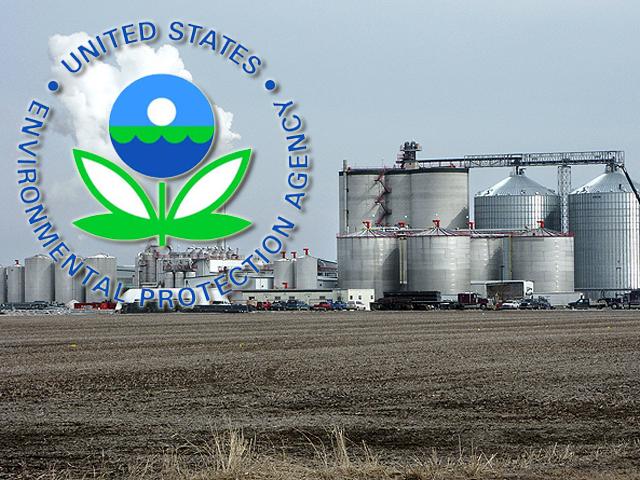Ethanol Group Requests Ida Fuel Waiver
Ethanol Group Asks EPA to Allow Biofuel to Fill Fuel Void Left by Ida
LINCOLN, Neb. (DTN) -- With the potential for fuel shortages in the wake of Hurricane Ida as many oil refineries either shut down or were forced to reduce capacity in the Gulf of Mexico, the Renewable Fuels Association has asked EPA to allow more ethanol to be sold in Louisiana and other states reeling from the storm.
Hurricane Ida made landfall near Port Fourchon, Louisiana, on Sunday morning as a strong Category 4 hurricane with maximum sustained wind speeds of 150 mph at landfall.
While heavy rains and flooding could affect crops and livestock in Ida's path, many gasoline stations may be short of fuel supplies.
In a letter to EPA Administrator Michael Regan on Monday, RFA's President and CEO Geoff Cooper called on the agency to allow more ethanol to fill the void left by crimped gasoline supplies.
"Specifically, we ask that EPA take steps to immediately allow fuel terminal operators, blenders and marketers to increase their use of fuel ethanol to help fill the void in gasoline supplies created by refinery shutdowns in the Gulf Coast," Cooper said.
According to multiple media reports, he said in the letter, most oil refineries in the Gulf Coast region are either shut down or operating at reduced rates. When in full operation, operating refineries in the region account for about 12% of the nation's refining capacity. They could be down four to six weeks from the storm.
P[L1] D[0x0] M[300x250] OOP[F] ADUNIT[] T[]
Cooper said EPA could help extend U.S. fuel supplies and protect consumers from price spikes by taking several actions.
The agency could suspend federal requirements as it relates to fuel storage, to free up the use of E15 in the region.
"These actions would allow many retailers who do not sell E15 today to immediately begin offering the fuel without being unduly delayed," Cooper said in the letter.
"EPA should also approve earlier requests to exercise enforcement discretion, if needed, to allow existing E15 retailers in conventional gasoline areas to continue selling the fuel through the remainder of the summer ozone control season."
Cooper said because the ethanol industry continues to recover from COVID-19 market disruptions, about 200,000 barrels per day of ethanol production capacity still is either idled or used to produce other non-fuel ethanol.
"With immediate action to grant the requested regulatory relief, some of this capacity could be quickly activated or reoriented to help alleviate impending fuel shortages resulting from Hurricane Ida," Cooper said.
"For many reasons, utilizing domestically produced low-carbon fuel to help offset the supply shortage is preferable to importing more petroleum products from OPEC-plus nations, as is currently being planned. While the actions requested above would help address the current supply challenges, the hurricane underscores a larger need for greater diversity, flexibility, and climate resiliency in our transportation fuels sector."
Cooper said as hurricanes and other extreme weather events occur "more frequently and grow more intense," severe damage and outages at refineries and offshore oil platforms are growing more common.
"Overreliance on petroleum has left our transportation fuels infrastructure vulnerable to disruption and volatility, with American consumers bearing the brunt of price spikes and fuel shortages," he said.
"By comparison, the fuel-ethanol industry's infrastructure is unconcentrated, dispersed and uses a variety of efficient delivery channels. As the Biden administration pursues initiatives to expand and fortify our nation's energy infrastructure, Hurricane Ida serves as a poignant reminder that ethanol biorefineries are strategic assets that can and should play a larger role in powering America forward," he said.
To see other coverage on Ida:
"Strong Hurricane Ida Poses Crop Threat," https://www.dtnpf.com/…
Todd Neeley can be reached at todd.neeley@dtn.com
Follow him on Twitter @DTNeeley
(c) Copyright 2021 DTN, LLC. All rights reserved.



